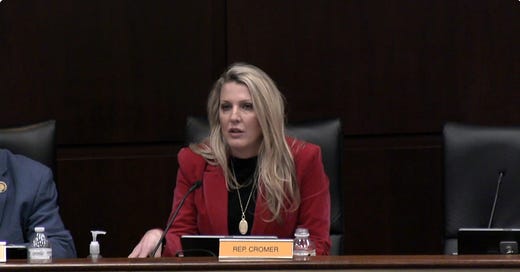This piece has been updated to reflect further posts from the Anderson Moms for Liberty chair, who has continued to dox librarians on Facebook, using the FOIA request. (See “Proud Mom for Liberty.”)
Late last year, SC Representative April Cromer made an extremely broad Freedom of Information Act (FOIA) request1 with Anderson One Schools which resulted in a production of around 17,000 pages of documents at the school district’s expense2.
Cromer’s request and further information are available here, via SC-ACLU.
Placing strain on district staff is itself a frequent tactic of Moms for Liberty and related groups, but the FOIA request and Cromer’s cooperation have also been used to reveal names and personal information of several Anderson One educators, including in a blog post light on evidence and thick with conspiracy theories and out-of-context quotes. And Cromer’s close political allies have moved quickly to use the post to call for the termination of librarians and teachers targeted by the…
Keep reading with a 7-day free trial
Subscribe to Other Duties (as assigned) to keep reading this post and get 7 days of free access to the full post archives.



